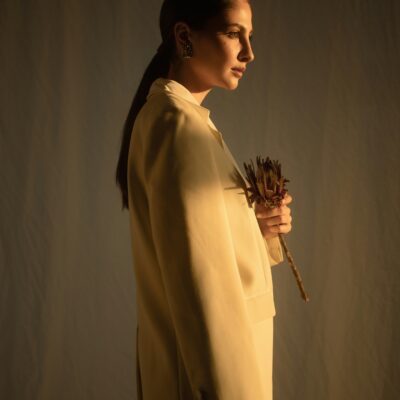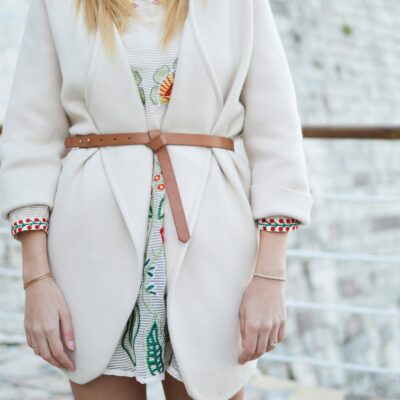Introduction to the Evolution of Fashion
Step into a time machine with us as we embark on a journey through the fascinating world of fashion evolution. From the glamorous Roaring Twenties to the iconic styles of Hollywood’s Golden Age, and all the way to today’s trend-setting influencers, we will explore how fashion has transformed over the decades. Get ready to dive into the history of style and discover how each era has left its unique mark on the ever-changing landscape of fashion.
1920s: The Roaring Twenties and Flapper Style
Step back in time to the glamorous era of the 1920s, where jazz music filled the air and flappers danced with reckless abandon. The Roaring Twenties marked a shift towards liberation and rebellion against traditional norms. Women embraced a new sense of freedom, opting for shorter hemlines, bold makeup, and sleek bob haircuts.
The iconic flapper style became synonymous with the spirit of the decade – think fringe dresses, cloche hats, and beaded accessories. Coco Chanel revolutionized fashion by popularizing comfortable yet chic designs like jersey knit dresses. The rise of Art Deco aesthetics also influenced clothing patterns and jewelry designs during this period.
With speakeasies thriving amidst Prohibition laws, fashion reflected a sense of defiance and decadence. Flappers embodied a carefree attitude that resonated through their ensembles – mixing elegance with a touch of rebellion in every step they took on dance floors across the nation.
1950s: The Golden Age of Couture and the Influence of Hollywood
Let’s rewind back to the glamorous 1950s, a time when couture reigned supreme and Hollywood stars set the style trends for the masses. The post-war era brought a newfound sense of opulence and sophistication to fashion, with designers like Christian Dior leading the way with his iconic New Look silhouette.
Women embraced full skirts, nipped-in waists, and elegant gloves – epitomizing feminine allure. Hollywood starlets such as Audrey Hepburn and Grace Kelly became style icons, influencing women around the world with their impeccable taste in clothing.
Couturiers like Coco Chanel continued to revolutionize fashion by introducing timeless pieces such as the little black dress that remain staples in our wardrobes today. The 1950s truly marked a golden age of elegance and glamour in fashion history.
1970s: Disco Fever and Bohemian Chic
The 1970s was a decade of contrasting fashion trends – Disco Fever and Bohemian Chic. The disco scene brought out bold and glamorous styles with sequins, glitter, and flared pants ruling the dance floor. People danced the night away in flashy outfits that sparkled under the disco ball.
On the other hand, Bohemian Chic embraced a more laid-back approach to fashion with flowy maxi dresses, fringe details, and flower crowns inspired by the free-spirited hippie culture. Earthy tones and natural fabrics were key elements in achieving this boho look.
Whether you were strutting your stuff at Studio 54 or attending a music festival in flowing garments, both Disco Fever and Bohemian Chic represented freedom of expression through clothing choices. The ’70s truly offered something for everyone to showcase their unique style preferences.
1990s: Grunge, Minimalism, and Supermodels
Ah, the 1990s – a decade that brought an eclectic mix of fashion trends to the forefront. Grunge took over with its edgy and rebellious vibe, characterized by plaid shirts, ripped denim, and combat boots. It was all about embracing a laid-back and nonchalant look that exuded coolness.
On the flip side, minimalism also made its mark during this era. Clean lines, neutral colors, and simple silhouettes became synonymous with chic sophistication. The less-is-more mentality dominated runways and street style alike.
And who could forget the reign of supermodels like Cindy Crawford, Naomi Campbell, and Kate Moss? These iconic figures not only graced magazine covers but also influenced fashion choices worldwide with their effortless glamour and undeniable charisma.
The 1990s were truly a melting pot of contrasting styles that continue to inspire modern-day fashionistas looking to make a statement with their wardrobe choices.
2000s: The Rise of Fast Fashion and Celebrity Influence
The 2000s marked a significant shift in the fashion industry with the rise of fast fashion brands. Suddenly, trends were changing at lightning speed, and consumers could easily access affordable clothing inspired by high-end designs.
Celebrities played a pivotal role in shaping fashion during this era. Their red carpet looks and street style became instant sensations, influencing millions of fans worldwide to emulate their outfits.
Social media platforms like Myspace and later on Instagram allowed for real-time sharing of celebrity fashion moments, further fueling the desire for trendy clothing items.
Fast fashion giants like Zara and H&M capitalized on these influences by quickly producing affordable versions of celebrity-endorsed styles, making it easier than ever for people to stay up-to-date with the latest trends without breaking the bank.
The 2000s set the stage for a new era where fashion was no longer just about luxury but also about accessibility and mass appeal.
Present Day: The Blurring of
In today’s fashion landscape, boundaries are constantly being pushed and redefined. With the rise of social media influencers and sustainable fashion movements, we see a shift towards individuality and conscious consumerism.
Fashion has become more inclusive, diverse, and accessible than ever before. Street style mixes with high fashion on the runways, while vintage pieces are paired with modern trends.
As we look back at the iconic trends through the decades, it is evident that fashion is an ever-evolving art form that reflects our society’s values and aspirations. The future of fashion seems to be limitless, with creativity driving innovation and self-expression at its core.
So let us embrace this era of experimentation and self-discovery in fashion, celebrating both the past influences and future possibilities that lie ahead. After all, style is not just about what you wear but how you wear it – with confidence, flair, and a touch of individuality.





